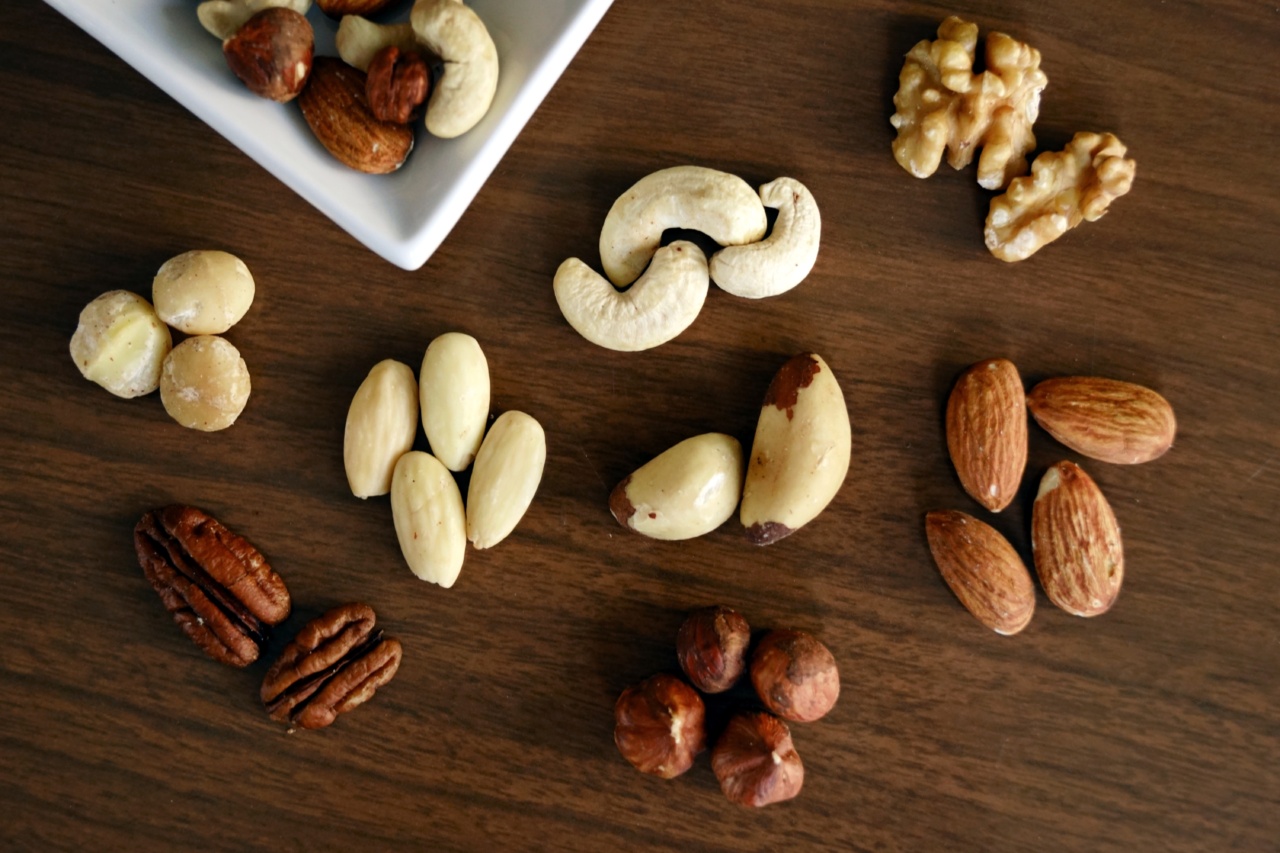Heart disease is a leading cause of death worldwide. According to the World Health Organization (WHO), an estimated 17.9 million people die each year from cardiovascular diseases, which include heart attack and stroke.
But did you know that eating nuts can help reduce the risk of heart disease?.
Almonds
Almonds are an excellent source of monounsaturated fats, which have been linked to lower levels of LDL or “bad” cholesterol. High levels of LDL cholesterol can increase the risk of heart disease.
A study published in the Journal of the American Heart Association found that people who ate almonds as part of a heart-healthy diet experienced lower levels of LDL cholesterol compared to those who did not.
In addition to their heart-healthy fats, almonds are also a good source of fiber, vitamin E, and magnesium. Vitamin E is a powerful antioxidant that helps protect the heart against damage from free radicals.
Magnesium helps regulate blood pressure and supports normal heart rhythm.
Walnuts
Walnuts are a great source of alpha-linolenic acid (ALA), a type of omega-3 fatty acid that has been shown to reduce the risk of heart disease.
Omega-3 fatty acids are essential fats that cannot be synthesized by the body and must be obtained through the diet. A study published in the American Journal of Clinical Nutrition found that consuming walnuts helped decrease LDL cholesterol levels and improve blood vessel function, both of which can reduce the risk of heart disease.
Walnuts are also a good source of monounsaturated fats and fiber. One ounce of walnuts contains about 2 grams of fiber, which can help lower cholesterol and improve blood sugar control.
Pistachios
Pistachios are a good source of heart-healthy fats, fiber, and protein.
A study published in the Journal of Nutrition found that consuming pistachios helped lower LDL cholesterol levels and improve other markers of heart health, such as blood pressure and inflammation. Pistachios are also rich in antioxidants, which help protect the heart against damage from free radicals.
One of the benefits of pistachios is that they are a low-calorie nut. A one-ounce serving, or about 49 pistachios, contains just 159 calories. This makes a serving of pistachios a great snack option for those looking to maintain a healthy weight.
Cashews
Cashews are a good source of monounsaturated and polyunsaturated fats, which have been shown to improve cholesterol levels and reduce the risk of heart disease.
Cashews are also rich in antioxidants, including vitamin E, which help protect the heart against damage from free radicals.
Cashews are also a good source of magnesium, which plays a role in regulating blood pressure and supporting normal heart rhythm.
In addition, cashews are a good source of protein and fiber, both of which can help maintain a healthy weight and reduce the risk of heart disease.
Hazelnuts
Hazelnuts are an excellent source of monounsaturated fats, fiber, and antioxidants.
A study published in the Journal of Nutrition found that consuming hazelnuts helped improve levels of HDL or “good” cholesterol, which helps protect the heart against heart disease.
In addition to their heart-healthy fats, hazelnuts are also a rich source of vitamin E, which helps protect the heart against damage from free radicals.
Hazelnuts are also a good source of magnesium and potassium, two minerals that play a role in regulating blood pressure and maintaining normal heart rhythm.
Macadamia Nuts
Macadamia nuts are a good source of monounsaturated fat, which has been shown to be beneficial for heart health.
A study published in the Journal of Nutrition found that consuming macadamia nuts helped decrease levels of LDL cholesterol and increase levels of HDL cholesterol, both of which can reduce the risk of heart disease.
Macadamia nuts are also a good source of fiber and antioxidants, which help protect the heart against damage from free radicals.
One of the unique benefits of macadamia nuts is that they are a good source of thiamin, a B-vitamin that plays a role in regulating energy production and supporting normal heart function.
Pecans
Pecans are a great source of monounsaturated fat and fiber.
A study published in the Journal of Nutrition found that consuming pecans helped lower levels of LDL cholesterol and increase levels of HDL cholesterol, both of which can reduce the risk of heart disease.
Pecans are also rich in antioxidants, including vitamin E and ellagic acid, which help protect the heart against damage from free radicals.
In addition, pecans are a good source of magnesium and potassium, two minerals that play a role in regulating blood pressure and maintaining normal heart rhythm.
Brazil Nuts
Brazil nuts are a great source of selenium, a mineral that plays a crucial role in heart health. Selenium helps protect the heart against damage from free radicals and can improve levels of HDL cholesterol.
A study published in the American Journal of Clinical Nutrition found that consuming Brazil nuts helped improve levels of HDL cholesterol in healthy volunteers.
Brazil nuts are also a good source of monounsaturated and polyunsaturated fats, which have been shown to improve cholesterol levels and reduce the risk of heart disease.
However, it is important to consume Brazil nuts in moderation, as they are also one of the richest dietary sources of selenium, and too much can be harmful.
Chestnuts
Chestnuts are a low-fat nut option, with just 1 gram of fat per ounce. However, they are a good source of fiber and vitamin C, which is important for maintaining a healthy heart.
Chestnuts are also a good source of potassium, which plays a role in regulating blood pressure and maintaining normal heart rhythm.
A study published in the American Journal of Clinical Nutrition found that consuming a diet rich in potassium helped reduce the risk of heart disease and stroke.



























